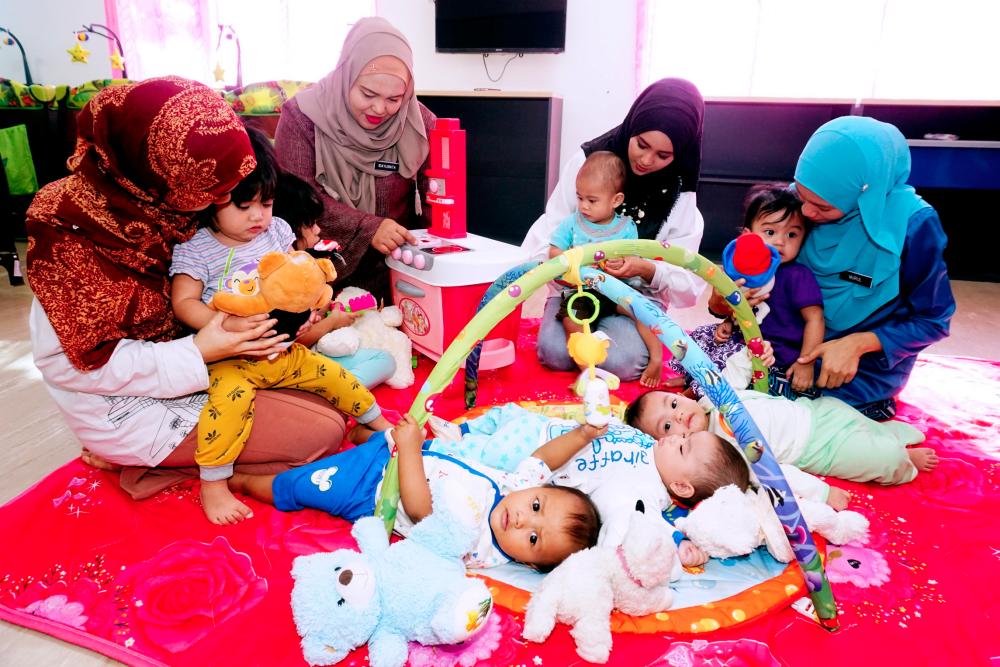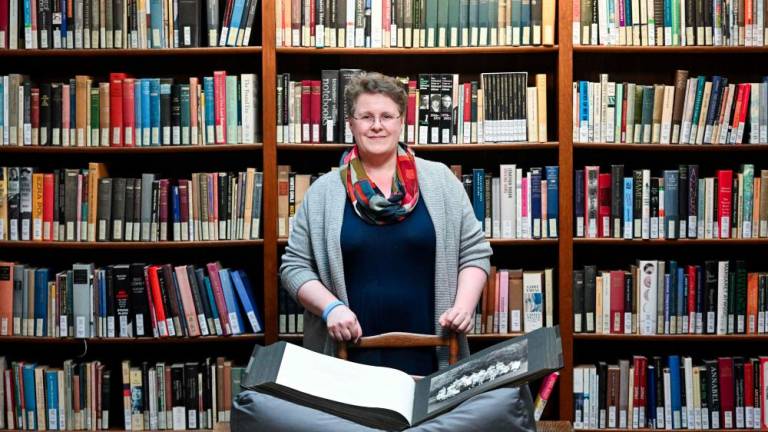PETALING JAYA: Mandatory registration for child minders, stricter enforcement of the law and training are among the steps that must be taken to ensure a safe environment for children left in the care of others.
President of the Association of Registered Childcare Providers Anisa Ahmad said all babysitters — whether home-based or at childcare centres — should be registered with the Department of Social Welfare.
She said this was to ensure that there was accountability in the event that the child was found to have been abused or neglected at childcare centres leading to serious injuries or death.
Anisa was commenting on a recent case in which a four-year-old girl was allegedly raped by her babysitter’s son.
The nursery in Batu Gajah has been shut down on the orders of Deputy Prime Minister Datuk Seri Dr Wan Azizah Wan Ismail.
The Child Care Centre Act 1984 only requires nurseries that accept four children or more, aged below four years, to register with and be certified by the department.
Records from the department show that as of 2018 there were a total of 3,654 registered childcare centres.
But more disconcerting is the fact that of the 16,873 persons working as babysitters, only 3,173 have been certified by the department as qualified child minders.
Data shows that as of last year, there were 2.6 million Malaysians aged four and below.
Anisa said there was also an urgent need to review the Kursus Asuhan Permata (KAP) — a course to train child minders — to ensure that it met current needs.
The KAP comprises a 26-day course on theory of childcare and a five-day practical training session. It is a one-off training module.
“We need to upgrade a child minder’s skills by requiring her to attend courses regularly.
Taking the KAP just to get certification is not enough,” she said.
She pointed out that childcare providers and operators of nurseries were accountable and responsible for any mishap.
“What you learn at the KAP is only a guide. It does not make you a professional or expert in childcare,” she added. “We are dealing with children, not toys. Efforts to continuously upgrade the babysitter’s skills is crucial.”
Lawyer Manimagalai G. pointed out that there was no requirement for a minimum qualification to become a child minder.
Even the Child Care Centre Act does not make it mandatory for nurseries or kindergartens to be registered,” said the former child rights committee at the Malaysian Bar.
She noted that stricter enforcement of the law was necessary to ensure the child’s safety.
“Money or mutual trust based on relationships are not enough to keep the child safe,” she told theSun.
Educational psychologist Prof Rohaty Mohd Majzub observed that many parents opted to send their children to unregistered childcare centres or babysitters because they were cheaper.
“Most families in the lower-income group cannot afford the more than RM1,000 per month fee to send their children to daycare centres,” she said. “These parents have no choice but to fall back on the neighbourhood nanny.”
Rohaty said parents were to blame for mishaps involving children. “Some of them are too simple-minded, ignorant or engrossed in their work to question the abilities of the babysitter,” she said.
A case in point, she said, was five-month old Adam Raykal Mohd Sufi Naeif, who was found dead in his babysitter’s refrigerator in July last year.
Psychologist and criminologist Dr Geshina Ayu Mat Saat said that for many parents, factors such as cost-cutting measures, proximity to their workplace or home and ease of travel took priority over safety of their children when choosing a babysitter.
“Very rarely do parents take the time and effort to assess the suitability, level of training and qualification of the child minder, nor whether or not the centre is registered,” she said.
“Many just depend on word-of-mouth from other parents,” she added.
Geshina also agreed with Anisa’s assessment that the KAP should be reviewed. “The training should at least reach a semi-professional level with a reasonably acceptable quality of service. Of course that would raise the cost for parents,” added.
She said child minders should understand that they needed to meet minimum standards and were open to regular monitoring.
“This should not be perceived as a source of additional income for stay-at-home mums but a genuine commitment to look after a child,” she added.















